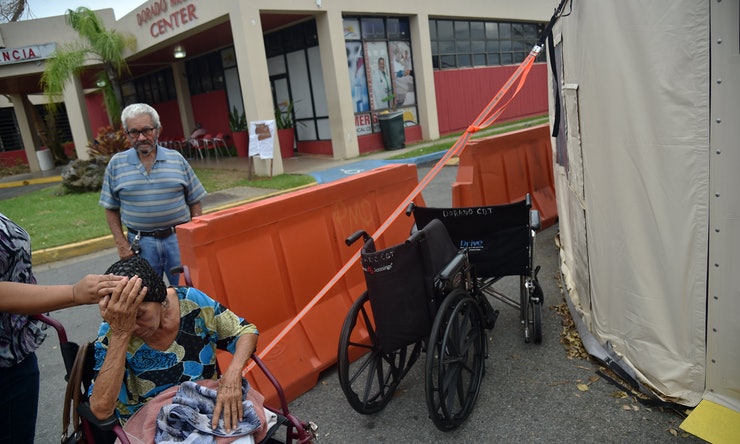News
How Is FEMA Helping Puerto Rico? The National Nurses' United Says It's "Leaving Them To Die"

Six weeks after Hurricane Maria struck Puerto Rico with deadly force and left the island dark, the negative news about the situation for the island's residents keeps pouring in. Now, in a sharp criticism of the federal aide response in Puerto Rico, a nurses' union, via a representative on Capitol Hill, said that the response had had the effect of "delaying necessary humanitarian aide to its own citizens and leaving them to die."
The group, called National Nurses' United, had sent over 50 nurses to towns all over Puerto Rico, and they felt compelled to speak out after hearing reports of conditions that the nurses had seen. Bustle has reached out to both NNU and FEMA for comment.
Hurricane Maria hit Puerto Rico nearly 40 days ago, and it has now caused officially the largest blackout in U.S. history. Approximately 75 percent of the island's inhabitants still don't have power, and while the official data says that only 25 percent of people still lack running water, unofficial reports from the ground tell a much darker story.
With those statistics, the grisly stories that the nurses came back to tell are, while disturbing, unsurprising. Given that much of the island still lacks power, it makes perfect sense that, as they say, doctors would have to perform surgery using cell phone cameras for light and people all over the place would still be going hungry.
NNU is the nation's largest union of registered nurses, and 50 of its members had gone to Puerto Rico as a part of the NNU-sponsored disaster relief program, the Registered Nurse Response Network (RNRN). On Thursday, nurses returning from their volunteer stint in Puerto Rico spoke with Democratic members of Congress to criticize the federal response to the ongoing crisis in Puerto Rico.
“Many communities our nurses encountered had never seen anyone from FEMA. And for those Puerto Ricans that did have contact with FEMA, many did not receive a sustaining level of food or water,” said Bonnie Castillo, director of the RNRN program.